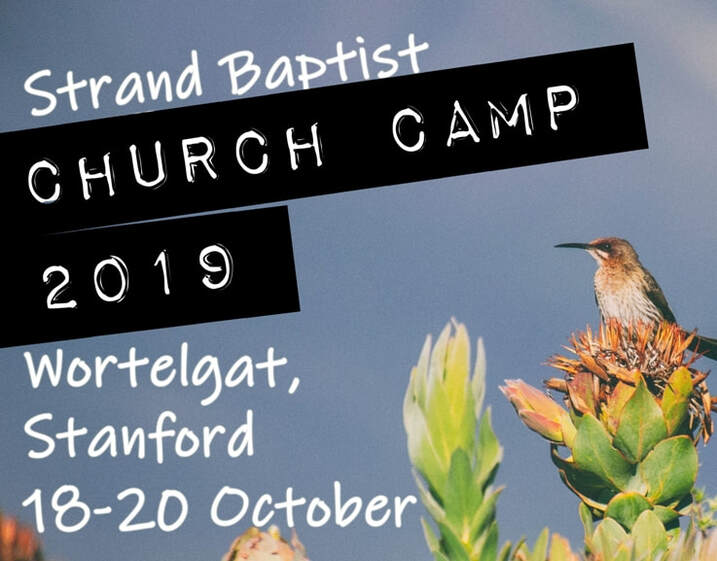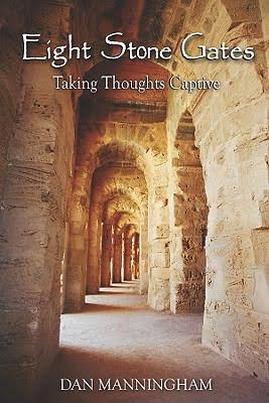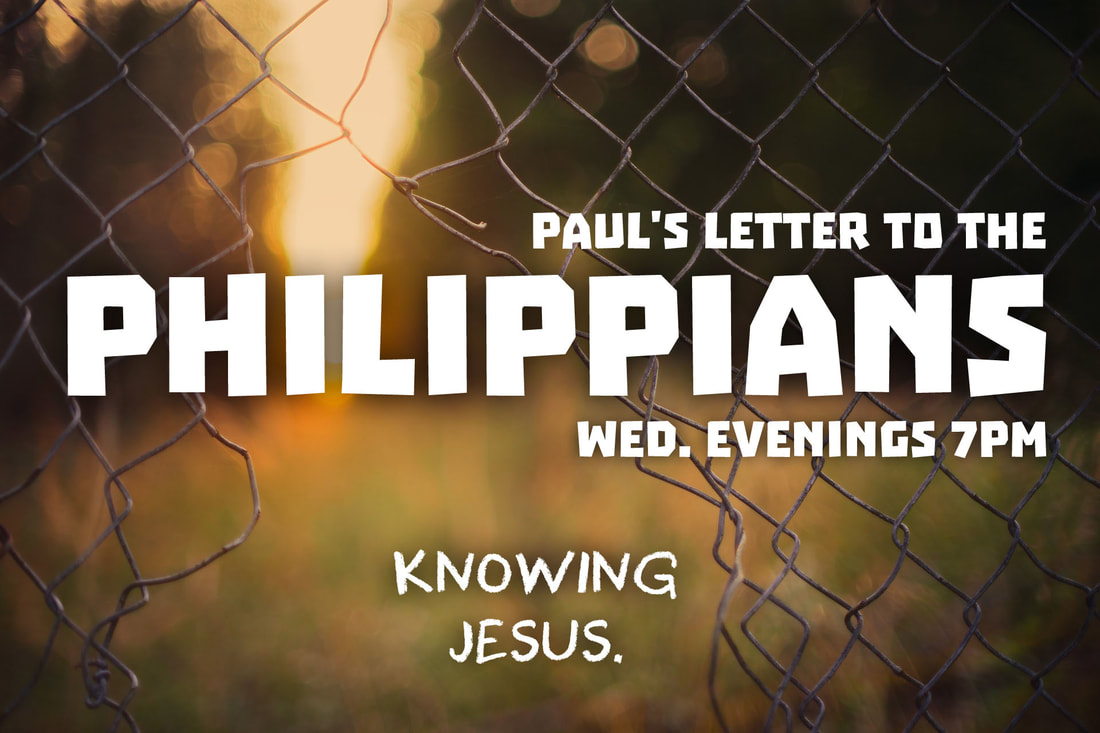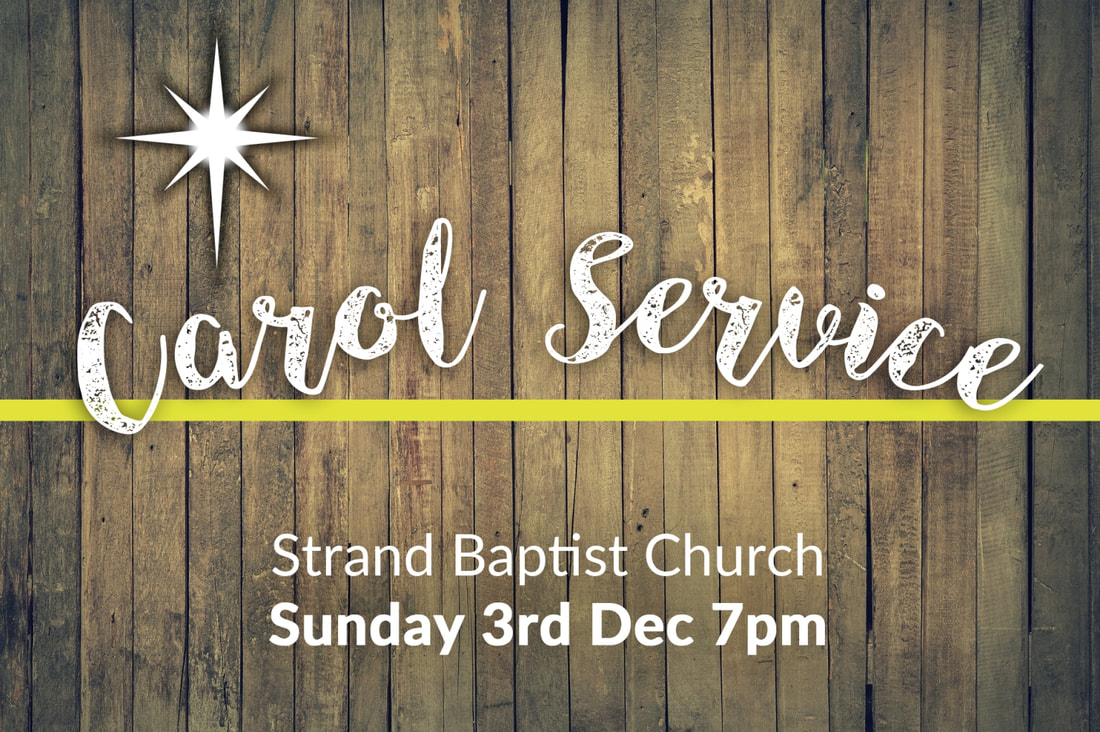|
Dear SBC family,
Grace to you, and peace from God our Father and the Lord Jesus Christ. The last few weeks have not been kind to South Africa or the South African church. The sudden rise in infections has led to lives being lost, hospitals being overwhelmed, and our churches being closed once again. The government’s return to lockdown level 3 has sparked much discussion about what the church’s response to these latest restrictions should be. As elders we recognize that there is a great deal of confusion and frustration. Some of the restrictions seem arbitrary, even contradictory, and place a disproportionate burden on certain citizens and institutions. How should the church respond? There have been calls for compliance and for civil disobedience. We recognize that there are differing views not only within the wider Baptist community, but also within our own church. Our decision will leave some frustrated, regardless of what we decide. This, however, should not be the basis upon which we make such decisions. Our goal should not be to appease the most people, but to obey and honour the Lord Jesus Christ, who is the head of the church (Col. 1:18). The Lordship of Christ As Baptist we believe in “the direct Lordship of Christ over every believer and over the local church. By this we understand that Christ exercises His authority over the believer and the local church directly, without delegating it to another” (taken from our Statement on Baptist Principles). Confessing Jesus Christ as Lord means that we owe him our total allegiance, loving service, and faithful obedience. This statement of principle is rooted in Scripture. The Bible teaches that Jesus is Lord over all creation (Phil. 2:10-11), over every human institution (Rom. 13:1; Eph. 1:22-23), and over every church (Col. 1:18). Our primary aim in every sphere of life is to honour our Lord. In the words of Rev. 5:12: “Worthy is the Lamb that was slain to receive power, and riches, and wisdom, and strength, and honor, and glory, and blessing”. Throughout history Christians have suffered for this conviction. The early church suffered because they confessed Jesus as Lord, not Caesar. Early Baptists suffered because they would not allow government authorities to dictate the church’s beliefs and practice. They disobeyed government and were imprisoned for it. Should we, with the current restrictions on religious gatherings, do the same? Governing authorities instituted by God What should our attitude to civil authorities be? Scripture teaches us that believers should “be subject to the governing authorities” (Rom. 13:1a). There is an important reason for this: “For there is no authority except from God, and those that exist have been instituted by God” (Rom. 13:1b). We are told that the government is “God’s servant for your good” and is “an avenger who carries out God's wrath on the wrongdoer” (v. 4). Elsewhere, we are told that government should “punish those who do evil and to praise those who do good” (1 Pet. 2:14). Government, therefore, has a God-given duty to promote public order and peace, while also punishing evil. The church’s role differs from that of government. Foundationally, the church has been called to glorify God by being and making disciples. We believe that the church is called to spread the gospel (Acts 1:8), disciple believers (Matt. 28:19-20; Eph. 4:11-13), and to minister in Christ’s name (Matt. 25:31-46). In doing so we are “salt” and “light” (Matt. 5:13-16), and a blessing to society. When both government and the church fulfil their roles well it leads to harmony and blessing. This is a universal good and we are commanded to pray for it (1 Tim. 2:1-3). But what happens when government oversteps or interferes in the life of the church? The importance of the gathered church Hebrews 10:25 reminds us just how important the gathering of the local church is. Tragically, in our hyper-individualized society the gathered church has been forced to take a back seat to personal preference and convenience. This was a problem before the lockdown and has only deepened under the current restrictions. How important is gathering as a local church? Scripture teaches that it is vital to the spiritual health of the believer and church’s ministry to the world. Heb. 10:25 reads: “not neglecting to meet together, as is the habit of some, but encouraging one another, and all the more as you see the Day drawing near.” What does this mean? When we read it in context, we find that verse 25 is part of one long sentence in the original Greek that starts way back in verse 19. In this sentence the author of Hebrews gives a three-fold admonition (v. 22-25), rooted in the gospel of Jesus Christ (v. 19-21). Each of these admonitions are introduced by the phrase “let us”: “let us draw near” (v. 22), “let us hold fast” (v. 23), and “let us consider” (v. 24). The first two admonitions, while corporate in nature (we do them together), are focussed on our relationship with God: drawing near to God and holding on to our faith in him. The third admonition reveals how our relationship with God affects our relationships with our neighbours: “And let us consider how to stir up one another to love and good works” (v. 24). This means that very careful consideration should be given to how we can stir up, inspire, or encourage our fellow believers to fulfil our Lord’s commands to love our neighbour (Matt. 22:39) and do good works (Matt. 5:16). When the author of Hebrews adds “not neglecting to meet together”, he gives us the context within which this command is to be obeyed. The love and good works that are called for in verse 24 are the product of fellowship within the body of Christ. We cannot fulfil these commands in isolation. In the words of Hughes: “The failure of love shows itself, then, in selfish individualism, and specifically here in the habit of some of neglecting to meet together. Such unconcern for one’s fellow believers argues unconcern for Christ himself and portends the danger of apostasy.” Without the encouragement of the local church the Hebrew believers were in danger of apathy (not taking God’s commands seriously) or worse, apostasy (abandoning the faith). Neglecting the gathered church Heb. 10:25 says that we should not neglect “to meet together, as is the habit of some”. The term that the author used implies willful neglect or abandonment. It is the same word that Jesus used on the cross when he cried out: “My God, my God, why have you forsaken me?” (Matt. 27:46). The apostle Paul also used it to describe Demas deserting him (2 Tim. 4:10). Some Hebrew believers were turning their back on the gathered church because of persecution. This weakened their already weak faith ever further. We need the gathered church. What if you cannot gather? This is clearly different from the example above. There have been occasions where God’s people could not gather for worship. The Sons of Korah wanted to worship God in his sanctuary but could not because of their oppressors (Psalm 42:1-2). David also, when he was hiding in the wilderness of Judea, said: “O God, you are my God; earnestly I seek you; my soul thirsts for you… So I have looked upon you in the sanctuary, beholding your power and glory.” (Ps. 63:1-3). He was overjoyed when he received the invitation to return to God’s temple: “I was glad when they said to me, ‘Let us go to the house of the Lord!’” (Ps. 122:1). As New Testament believers we understand that God’s presence is not limited to a temple, or even to the church building! We worship God in “spirit and truth” (John 4:23). Yet we recognize that gathering as believers is an integral part of being a Christian. Think of the apostle Paul, who longed to see his fellow believers (Rom. 1:11) and yearned for them with the affection of Christ (Phil. 1:8). When we cannot gather, we miss out on a vital part of Christian life and ministry. That is why these latest restrictions are difficult to bear. God has commanded us to gather. We feel the need to gather. What should we do when government says we can’t? To gather or not to gather The current restrictions on the gatherings of the church have been instituted to curb the spread of Covid-19. Since a new strain of the virus appeared in late October cases have been increasing steadily and hit a new peak in the weeks leading up to Christmas. A return to stricter lockdown restrictions seemed inevitable, but the closure of churches was unexpected. We complied with the initial two weeks, but even then, calls for civil disobedience were growing. Should we continue to comply? Richard Baxter, a seventeenth century pastor, wrestled with the same question. He spent time in prison for refusing to preach what his government prescribed, but he also wrote: “If the magistrate for the greater good, (as the common safety,) forbid church-assemblies in a time of pestilence, assault of enemies, or fire, or the like necessity, it is a duty to obey him.” Why? First, because these were exceptional circumstances and not the norm. Second, because we recognize that there may be good reasons for missing the gathering of the church for a short season. And finally, because by the omission of a few gatherings we may preserve the church to attend many. For this reason, the elders feel that the church should abide by these restrictions. However, we fully support those attempts to use the channels God has given us to petition government for the opening of churches. We pray for them and eagerly await the outcome of these legal challenges and will reopen as soon as we are able. Maintaining the fellowship In the meantime, the elders have put the following measures in place to, as much as we are able, make up for the lack of a Sunday service and our Bible studies:
We trust that this season will pass quickly and pray that the Lord will use it for his glory and to build his church. Please continue in prayer for one another and for the health, unity, and witness of Strand Baptist Church in our community. If you have any questions, please do not hesitate to contact the office. Because of Christ, The Elders of Strand Baptist Church
1 Comment
To our dear Strand Baptist Family,
Grace to you and peace from God our Father and the Lord Jesus Christ. By now we are all familiar with the Corona virus pandemic that has wreaked havoc across the world. In South Africa, the number of confirmed cases of the Covid-19 virus is edging towards 50 000. More than 1000 people have lost their lives to the virus. This is a tragedy and we grieve for every life lost. Our prayers are with those who are mourning, as well as those who are working hard to keep the spread of the virus in check. While this pandemic is far from over, there are signs of hope. We are grateful that many of our initial fears have not been realized. The mortality rate, while still tragically high, is mercifully much lower than initially anticipated. Of those South Africans who have been diagnosed with the virus more than 51% have recovered. When the lockdown started the medical experts were clear about what we should expect: Covid-19 is here to stay, but we can buy ourselves time to prepare for the inevitable outbreak. We have – at great cost – managed to flatten the curve. The first steps in reopening church For that reason, government has taken steps to relax restrictions, restart the economy, open schools and, more recently, allow public worship. On the 26th of May 2020 President Cyril Ramaphosa declared that places of worship may reopen for services during Lockdown Alert Level 3. This means that, starting on the 1st of June, churches may have congregational worship services subject to strict conditions.
Reopening Strand Baptist church After much prayer and consultation, the Executive have decided to reopen the church for public worship, starting on Sunday the 14th of June 2020. This gives us adequate time to put the necessary measures in place to ensure compliance with the regulations and the safety of our members and adherents. We recognize that these are trying and uncertain times. We therefore still encourage all those who are over 60 and those who have underlying medical conditions to stay at home. The services will still be recorded and will be made available as soon as possible on our website. The daily podcast will continue for as long as the lockdown is in place. For now, at least, we will not have Sunday School, Bible studies, ladies’ meetings, or prayer meetings. We value these ministries and view them as vital parts of our church ministry. As restrictions are lifted and more people can attend, these ministries will be reopened as well. Because of the 50-person attendance limit, members and adherents are asked to RSVP for services. Please confirm with the church office no later than the Thursday at 16:00 if you intended to join our Sunday service. You can contact the church office via phone or email. If you have not notified the office, you will not be allowed to attend on Sunday. If we receive more than 50 requests to attend, a second service can be arranged. What to expect when you arrive Before every service, the building will be sanitized as per government regulations. Everyone who attends must wear a mask for the full duration of the service. When you arrive, a team of volunteers will sanitize your hands, take your temperature, and ask you a few questions. Once you enter the building, an usher will show you to your seat. Only 50 chairs will be made available and will be spaced at least 1,5m apart. Sadly, we will not be allowed to sing, but music will be played as we enter the sanctuary. The pastor will be on the stage and has to stay at least 3m away from the congregation while preaching. Once the service is over, those in attendance can move to the exits. Again, the ushers will help to maintain social distancing. Coffee and tea won’t be served after the services and we request that members refrain from socializing after the service. A call to prayer Life in a fallen world is not without its risks. Romans 8:21 reminds us that the whole of creation is in “bondage to corruption”. We experience the effects of the fall all around us, now more so than ever. Life can be quite perilous. Yet we somehow find ways to mitigate risk and manage our fears. The apostle Paul had an interesting perspective about the dangers that he faced. In 2 Cor. 11 he catalogues some of them. They included beatings, imprisonment, stoning and being shipwrecked. How did he cope with it all? He gives us the answer in 2 Cor. 12:9: “But He said to me, ‘My grace is sufficient for you, for my power is made perfect in weakness.’” Instead of removing the danger, God assured Paul of his grace. We would like to assure our members and adherents that we will do what we can to manage the risk of infection at our services, but there are limits to what we can do. We therefore ask everyone to seek the Lord in prayer, ask for his wisdom and guidance, and pray for the safety of his people. Now is a time for prayer: “call upon me in the day of trouble; I will deliver you, and you shall glorify me.” (Psalm 50:15). Because of Christ, Pastor Pieter Pienaar Dear Strand Baptist Family,
Grace to you and peace from God our Father and the Lord Jesus Christ. On Monday, 23 March 2020, President Cyril Ramaphosa announced a 21-day national lockdown which will commence at midnight on Thursday. The previously announced state of disaster has already led to the suspension of our Sunday Worship Services. The lockdown means that all other church activities will also have to be suspended until the 16th of April 2020. How will the lockdown affect our SBC family?
In 2 Corinthians 4:16 the apostle Paul says something remarkable: “So we do not lose heart…” How could he not lose heart? Earlier in the chapter he mentioned being “afflicted” and “perplexed” (v. 8), “persecuted” and “struck down” (v. 9). He even mentioned “carrying in the body the death of Jesus” (v. 10). Paul and his fellow labourers suffered for the sake of the gospel, yet “we do not lose heart”. How was that possible? Paul had a different perspective on his suffering. First, he understood that God was renewing him day by day. Outward suffering was countered with inward renewal (v. 16). Through his trials the Lord sustained and sanctified him. Later Paul would even say: “I will boast all the more gladly of my weaknesses, so that the power of Christ may rest upon me.” (2 Cor. 12:9). Second, he understood that God had something better planned for his children. Paul spoke of “an eternal weight of glory beyond all comparison” (v. 17). Trials put things into perspective. When we remember all God’s glorious promises to his children, the present world and its difficulties are put in their proper place. Compared to the “glory beyond all comparison” our trials are “light” and “momentary” (v. 17). Third, he understood where his treasure should be. Paul instructs us to “look not to the things that are seen but to the things that are unseen” (v. 18). Don’t lose sight of eternity. Why? Because “the things that are seen are transient, but the things that are unseen are eternal.” Our hope is secure with Christ in glory. Nothing will change that. Isaiah 54:10 speaks volumes of God’s faithfulness in times of calamity: “For the mountains may move and the hills disappear, but even then my faithful love for you will remain.” These three truths help us to “not lose heart”. The grace of the Lord Jesus Christ and the love of God the Father and the fellowship of the Holy Spirit be with you all. Because of Christ, Pastor Pieter (on behalf of the SBC Executive) To our dear Strand Baptist Family, Grace to you and peace from God our Father and the Lord Jesus Christ. On the 31st of December 2019 health officials in China alerted the World Health Organization of a pneumonia outbreak that they had never seen before. On the 7th of January 2020 the new virus was identified as Covid-19, a new Coronavirus (which includes the common cold and the SARS virus). To date more than 150 000 people have been infected worldwide, with almost 6 000 deaths. While more than half of these cases are in China, the last few weeks have seen the virus spread rapidly in other parts of the world. Currently 143 territories are affected, including South Africa. While there are comparatively few confirmed cases of Covid-19 in South Africa, the number is expected to rise rapidly. The infection spreads by being near those who have been infected and inhaling droplets when they cough or sneeze, and through touch (handshakes, hugs and kisses). Our best defence against the virus is to slow its spread. We have already taken precautions at our worship services to protect, as far as we are able, our members and adherents. There are, at present, no confirmed cases of the virus in our church family. We praise the Lord for his mercy. The response from government On the 15th of March 2020 President Cyril Ramaphosa declared the Covid-19 virus a national disaster. As part of the measures to control the spread of the virus, President Ramaphosa announced the following: “it is essential that we minimise the risk of the spread of this virus by limiting contact amongst groups of people. While we appreciate the economic, religious, and cultural significance of social and community gatherings, the coronavirus is spread through contact between persons… Gatherings of more than 100 people will be prohibited.” This has serious implications for churches and calls for a prayerful and faithful response. Lessons from church history This is not the first time the Lord’s church has had to deal with an epidemic like this. In both the 14th and 15th century the Black Plague devastated Europe. The first outbreak killed nearly a quarter of Europe’s population. When the plague struck Martin Luther’s hometown of Wittenberg in August of 1527 many of his fellow citizens fled for their lives. Luther’s prince, Elector John, ordered Luther to leave as well. Luther stayed and continued to minister to those affected by the disease. At the time Luther wrote: “You ought to think this way: Very well, by God’s decree the enemy has sent us poison and deadly offal. Therefore I shall ask God mercifully to protect us. Then I shall fumigate, help purify the air, administer medicine, and take it. I shall avoid places and persons where my presence is not needed in order not to become contaminated and thus perchance infect and pollute others, and so cause their death as a result of my negligence.” Luther encouraged his congregation to spend time in the Word of God and in prayer. He also attended the ill and dying, which he viewed as his duty as their shepherd (Matt. 25:36 and 1 John 3:16). Another pandemic, the Spanish Flu, wreaked havoc all over the world from 1917 to 1919. It is estimated that more than 500 million people contracted the disease, with mortality rates close to 10%. It is considered one of the deadliest epidemics in human history. To combat the spread of the disease the District of Columbia, USA banned all public gatherings, including church services. How did the church respond? An emergency meeting of all Protestant ministers was called and they “voted unanimously to accede to the request of the District Commissioners that churches be closed in the city”. They went on record “as cheerfully complying with the request of the Commissioners, which, we understand applies to all churches alike. We furthermore recommend that our people shall conduct in their own homes some form of religious worship remembering in prayer especially the sick”. A few weeks later, when the spread of the disease began to subside, religious services resumed as normal. The teaching of Scripture: We believe that the Lord is sovereign over all his creation and that he does whatever pleases him. Psalm 135:6 declares: “Whatever the LORD pleases, he does, in heaven and on earth, in the seas and all deeps.” Even when Job was sorely afflicted, it was the Lord who allowed Satan to “touch his bone and his flesh” (Job 2:5), but the Lord did not allow Satan to take his life (v. 6). Job responded to this calamity the way he had responded to the others: with faith. “Shall we receive good from God, and shall we not receive evil?” The Bible affirms that in “all this Job did not sin with his lips” (v. 10). When the Lord called Moses, he was reluctant and afraid, because “I am slow of speech and of tongue.” (Ex. 4:10). The Lord reminded Moses: “Who has made man's mouth? Who makes him mute, or deaf, or seeing, or blind? Is it not I, the LORD?” (v. 11). Even here the Lord was sovereign. Lamentations 3:37-38 helpfully reminds us who is in control: “Who has spoken and it came to pass, unless the Lord has commanded it? Is it not from the mouth of the Most High that good and bad come?” Again, the Lord declares: “I am the LORD, and there is no other, besides me there is no God; I equip you, though you do not know me, that people may know, from the rising of the sun and from the west, that there is none besides me; I am the LORD, and there is no other. I form light and create darkness, I make well-being and create calamity, I am the LORD, who does all these things.” (Isa. 45:5-7). When a pandemic strikes, it is a comfort to know that our Lord is in control. We know where to turn: “call upon me in the day of trouble; I will deliver you, and you shall glorify me.” (Psalm 50:15). Admittedly it does not give us all the answers. There are still a number of “why” and “what now” questions that need to be answered, but we can proceed knowing that the “LORD is on my side; I will not fear.” (Psalm 118:6). What does God expect of us in the midst of calamity?
The church has weathered worse storms and Christ has carried us through. Let us be an example to our children, our neighbours and the watching world of calm, prudence and compassion. The response from Strand Baptist Church In love for our members, adherents and visitors, and in obedience to the government (Romans 13:4; 1 Pet. 2:13-14), we have taken the following steps:
Time for reflection
Calamity has a way of bringing some needed perspective. This pandemic serves as a reminder of our own mortality. We will all die and appear before the judgment seat of God (Heb. 9:27). Let us take comfort in the fact that the Lord has provided for our greatest need. When we were yet sinners, Christ died for us (Rom. 5:8). In doing so Jesus opened the way to the Father (John 14:6), offering forgiveness of sins and eternal life to all those who would repent and trust in him (Acts 10:43; Col. 1:14). This is our hope. The Heidelberg Catechism offers this comfort: “What is your only comfort in life and death? That I am not my own, but belong with body and soul, both in life and in death, to my faithful Saviour Jesus Christ. He has fully paid for all my sins with his precious blood, and has set me free from all the power of the devil. He also preserves me in such a way that without the will of my heavenly Father not a hair can fall from my head; indeed, all things must work together for my salvation. Therefore, by his Holy Spirit he also assures me of eternal life and makes me heartily willing and ready from now on to live for him.” This pandemic will pass. Let us keep our eyes firmly fixed on our Lord and Saviour Jesus Christ. Because of Christ, Pastor Pieter (on behalf of the Executive of Strand Baptist Church) Two books completed by the SBC Ladies Book Club this year:
|
Date
January 2021
Topics
All
|








